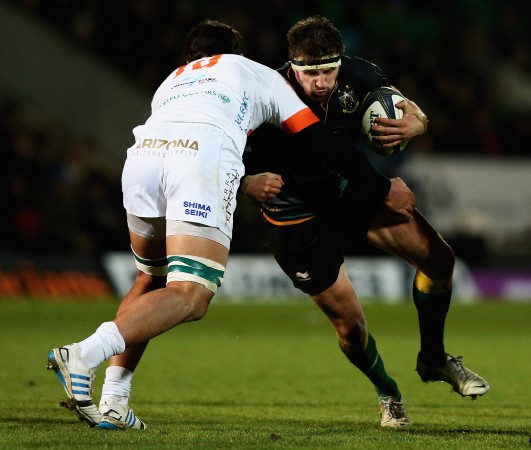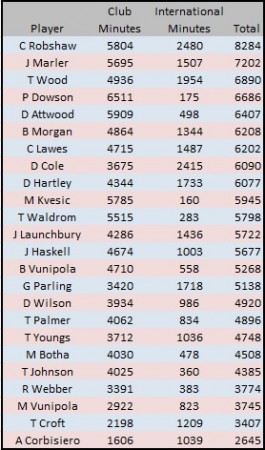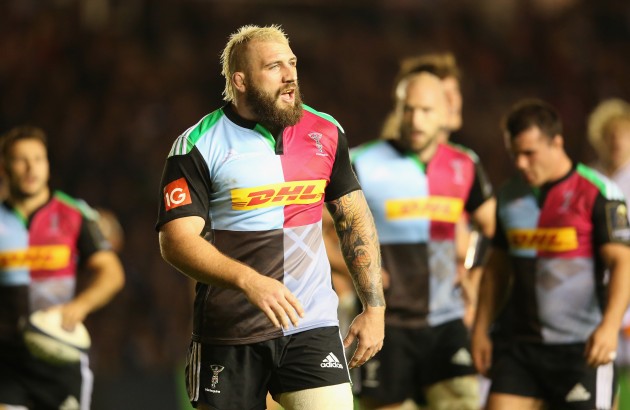With a World Cup approaching, expect much talk of growing the game and new commercial opportunities. Potential showpiece events such as the winners of Super Rugby and the European Champions Cup meeting or World XV against a major Test side are highly marketable. However of greater concern for players may be the number of games they already play, as well as the increase in injuries and forced retirements.
The creation of a global season and enforcing compulsory rest periods are two ideas that have been put forward in recent years, in the interests of player welfare. There is an element of outcome bias when it comes to giving players a break that will need to be overcome, if those ideas are to be fully accepted though. After this year’s Six Nations tournament, Harlequins‘ director of rugby Conor O’Shea opted to rest England players Chris Robshaw, Danny Care and Mike Brown for a Aviva Premiership match against Saracens.
That decision was criticised in the wake of their 39-17 loss. In contrast, when Northampton Saints lost consecutive league games in March, there were suggestions afterwards that they shouldn’t have brought back their internationals so soon. In both cases, the match result was used afterwards to judge whether the decision to rest players was correct or not.
Along similar lines, the call by Quins to replace Robshaw as captain with Joe Marler this season was questioned. However, any steps to avoid physical or mental burn-out should surely be praised, especially when the former’s workload is considered. Below is a list of the England starting forwards picked by Stuart Lancaster, ranked in order of how many total club and international minutes they have played from the 2011-12 season up until the 7 December 2014.
(These rugby statistics on minutes sourced from itsrugby.co.uk)
Robshaw tops the list and has played roughly the equivalent of 35 matches more than an average England starting forward in this period. The England skipper featured in all 320 minutes of the autumn Tests and in fact has played the full 80 minutes in each of his 31 Tests since February 2012.
In terms of his Test contribution – he averages a pass every 11 minutes, a run every nine minutes and a tackle every six minutes. In those 31 Tests he is responsible for 9% of England’s total carries and 11% of their tackles. Given he is involved so heavily, the error count is remarkably low with a penalty conceded every 131 minutes and a turnover conceded every 165 minutes.
Having suffered a run of injuries at the start of his career – broken leg, broken foot (twice), ruptured anterior cruciate ligament – Robshaw has since played through seven consecutive full seasons. A shoulder injury sustained against Leinster will rule him out for around a month, but it might be that rest was required anyway.
Injuries are the main factor for some of the lower numbers on that forwards list and help explain why Joe Marler has played an amount of minutes comparable to 57 full matches more than Alex Corbisiero in this period or Tom Wood, 44 more than Tom Croft.
Whether a club operates a rotation policy, the strength of their bench and opposition, position in the league may all influence how much a player is used. As an example, over the previous two seasons when Dan Cole has started a match for Leicester Tigers – he has stayed on the field for an average of 75 minutes whereas at Bath, David Wilson’s average is 55 minutes. James Johnston averages 55 minutes a start since joining Saracens, but it was 70 minutes at his previous club, Harlequins.
England will face Wales in Pool A of the World Cup next year. Below is a workload comparison of two possible teams, again going back to the 2011-12 season.
On average, those English players have played the equivalent of 15 club matches more than their Welsh peers, but 7 fewer Tests. The difference in Test selection consistency and ‘extra’ matches in the 2011 World Cup and 2013 British and Irish Lions Tour are reasons for that difference in International minutes played. It is also true that for a number of Welsh players on that list, the balance between club and Test minutes is almost equal in this period. Robshaw has played more domestic minutes than Dan Lydiate and Sam Warburton combined and Mike Brown over twice as many as Leigh Halfpenny.
In an interview with BBC Radio 5 live in October, new Rugby Players’ Association Chairman Christian Day said: “I would certainly say we are testing the limits on what is attainable.” Day played in 32 matches last season, the maximum number that was recommended for elite players in the 2007 Agreement between Rugby Football Union and Premier Rugby Ltd.
In New Zealand, senior All Blacks will miss the opening round of the next Super Rugby season and will then have their workload carefully managed throughout the campaign. It was already known that New Zealand would name a more experienced squad than the hosts in 2015 but it could well be a fresher one, too.
Initiatives like that are harder to implement in England without central contracts, but when discussions concerning the International schedule begin in 2019, perhaps a policy of ‘less is more’ would be advisable.









